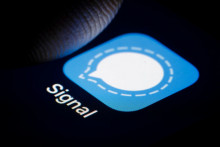Iranian hackers breach VPN servers to plant backdoors in corporate networks worldwide
Researchers at cyber security firm ClearSky claim to have uncovered an Iranian hacking campaign intended to gain a persistent foothold on the networks of major companies worldwide.
The campaign, dubbed Fox Kitten, was first noticed in the fourth quarter of 2019, although it represents the continuation of attacks that have been running for the past three years, targeting dozens of companies in Israel and around the world.













































































